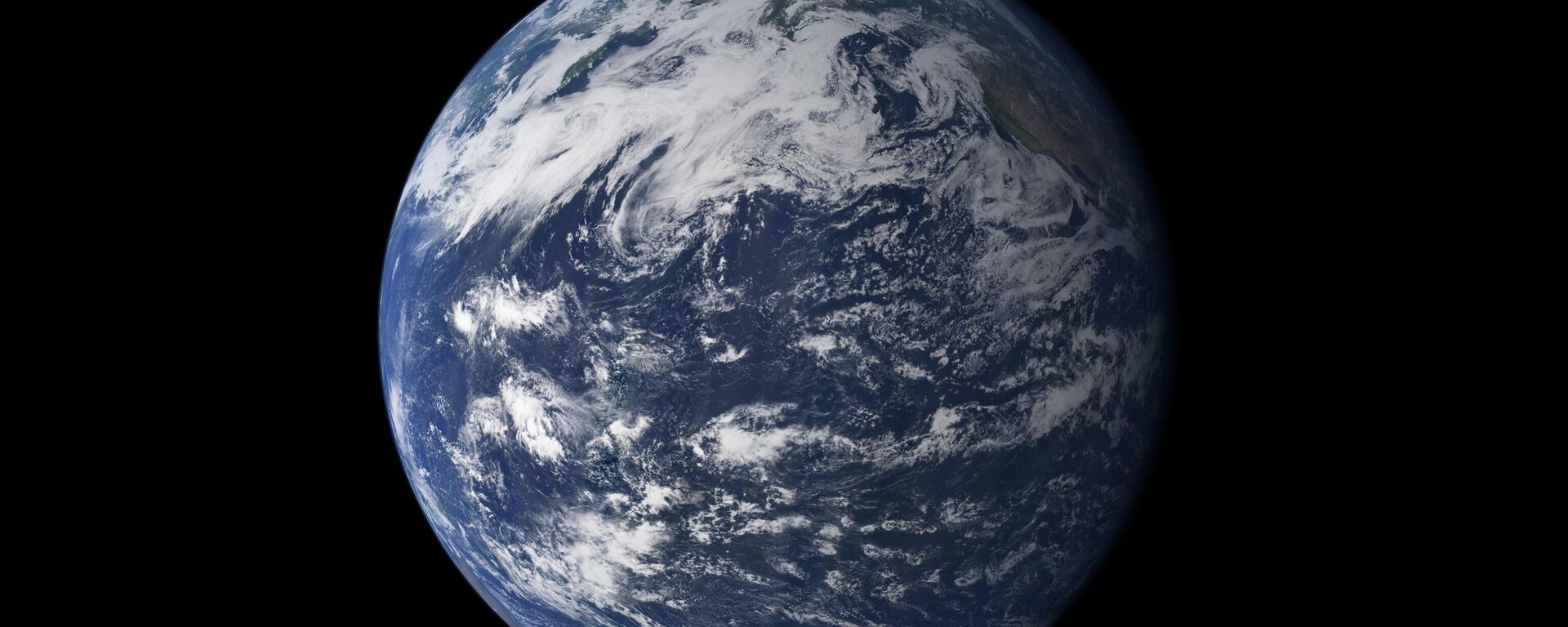https://en.sputniknews.africa/20231113/1063520566.html
Two Million Species Face Extinction, Experts Warn
Two Million Species Face Extinction, Experts Warn
Sputnik Africa
Among the creatures that play an important role in the Earth's ecosystem are insects, who have functions such as decomposing waste, pollinating, and recycling... 13.11.2023, Sputnik Africa
2023-11-13T14:57+0100
2023-11-13T14:57+0100
2023-11-13T16:11+0100
luxembourg
international
climate
nature
climate change
animals
animals' protection
earth
drought
https://cdn1.img.sputniknews.africa/img/07e7/0b/0d/1063520747_0:0:1601:901_1920x0_80_0_0_1a057bc4639ece2bffbf4538cacdd2ea.jpg
Recent research published in the PLOS One peer-reviewed scientific journal has revealed a disturbing rise in species on the brink of extinction. This figure, now estimated at about two million, is twice the 2019 estimates of the United Nations Environment Program. The significant rise is primarily attributed to the inclusion of more comprehensive insect data, indicating a higher extinction risk than previously assumed.The study, led by Professor Axel Hochkirch of Luxembourg's National Museum of Natural History, emphasizes the alarming decline in global biodiversity. This decline encompasses a range of species, including plants and vertebrates, signaling a more severe crisis.Invertebrates comprise 97% of the animal kingdom, with insects accounting for approximately 90%, and play vital roles in our ecosystem. These roles include waste decomposition, pollination, and soil nutrient recycling. The study's findings are worrying because, as Hochkirch points out: "Without insects, our planet will not be able to survive."An analysis of every European species listed on the International Union for Conservation of Nature's Red List revealed troubling statistics:The decline in natural environments and biodiversity can be linked to various man-made factors. These include agricultural expansion leading to habitat loss, overuse of natural resources, environmental pollution, and the growth of residential and commercial areas.Experts highlight the crucial role of pollinators and soil organisms in maintaining food quality and ecosystem health. About 75%t of the crops we consume depend on pollination. Simon Potts, professor of biodiversity and ecosystem services at Reading University, has explained the concept of 'pollination deficit,' noting that reduced pollination leads to lower yield and quality in crops such as fruits and vegetables.Pollinators also play a significant role in maintaining healthy water sources. They support plant ecosystems that clean water channels with mangroves, aided by pollinators, effectively removing contaminants and managing run-off. However, the global extent of mangroves has declined by about 35% since 1990.Extreme weather events, such as droughts and heat waves, directly affect plant life and soil quality. A plant and soil biology expert, Professor Franciska de Vries from Amsterdam University, warned that prolonged exposure to such conditions can drastically harm the soil's biodiversity and affect long-term plant growth, leading to the death of vital soil organisms.
https://en.sputniknews.africa/20231104/uneca-17-of-20-countries-most-vulnerable-to-global-warming-are-in-africa-1063302756.html
https://en.sputniknews.africa/20231105/southern-hemisphere-is-drying-scientists-warn-1063335088.html
luxembourg
earth
Sputnik Africa
feedback@sputniknews.com
+74956456601
MIA „Rossiya Segodnya“
2023
Chimauchem Nwosu
https://cdn1.img.sputniknews.africa/img/07e8/06/0b/1066992175_0:0:278:278_100x100_80_0_0_b5f6eaa3b85dbfcd0266ea860848a996.jpg
Chimauchem Nwosu
https://cdn1.img.sputniknews.africa/img/07e8/06/0b/1066992175_0:0:278:278_100x100_80_0_0_b5f6eaa3b85dbfcd0266ea860848a996.jpg
News
en_EN
Sputnik Africa
feedback@sputniknews.com
+74956456601
MIA „Rossiya Segodnya“
Sputnik Africa
feedback@sputniknews.com
+74956456601
MIA „Rossiya Segodnya“
Chimauchem Nwosu
https://cdn1.img.sputniknews.africa/img/07e8/06/0b/1066992175_0:0:278:278_100x100_80_0_0_b5f6eaa3b85dbfcd0266ea860848a996.jpg
luxembourg, international, climate, nature, climate change, animals, animals' protection, earth, drought
luxembourg, international, climate, nature, climate change, animals, animals' protection, earth, drought
Two Million Species Face Extinction, Experts Warn
14:57 13.11.2023 (Updated: 16:11 13.11.2023) Among the creatures that play an important role in the Earth's ecosystem are insects, who have functions such as decomposing waste, pollinating, and recycling soil nutrients.
Recent research published in the
PLOS One peer-reviewed scientific journal has revealed a disturbing rise in species on the brink of extinction. This figure, now estimated at about two million, is twice the 2019 estimates of the United Nations Environment Program. The significant rise is primarily attributed to the inclusion of more comprehensive insect data, indicating a higher extinction risk than previously assumed.
The study, led by Professor Axel Hochkirch of Luxembourg's National Museum of Natural History, emphasizes the alarming decline in global biodiversity. This decline encompasses a range of species, including plants and vertebrates, signaling a more severe crisis.
Hochkirch lays bare how critical a condition insects are in, stating: "What our study does is really highlight that insects are as threatened as other taxa. And because they are the most species-rich group of animals on our planet, this is really something which should be tackled."
Invertebrates comprise 97% of the
animal kingdom, with insects accounting for approximately 90%, and play vital roles in our ecosystem. These roles include waste decomposition, pollination, and soil nutrient recycling. The study's findings are worrying because, as Hochkirch points out: "
Without insects, our planet will not be able to survive."An analysis of every European species listed on the International Union for Conservation of Nature's Red List revealed troubling statistics:
20 percent of these species are on the brink of extinction.
This includes
24 percent of invertebrates (most of which are pollinators),
27 percent of plant species, and
18 percent of vertebrates.
The decline in natural environments and biodiversity can be linked to various man-made factors. These include agricultural expansion leading to habitat loss, overuse of natural resources, environmental pollution, and the growth of residential and commercial areas.
Experts highlight the crucial role of pollinators and soil organisms in maintaining food quality and ecosystem health. About 75%t of the crops we consume depend on pollination.
Simon Potts, professor of biodiversity and ecosystem services at Reading University, has explained the concept of 'pollination deficit,' noting that reduced pollination leads to lower yield and quality in crops such as fruits and vegetables.
"If you get less pollination, you’re going to get less production. But not just less yield [...] the quality of that produce is going to go down […] your strawberries will be misshapen and they won’t be so packed full of sugars," Professor Potts said to media sources.
Pollinators also play a significant role in maintaining healthy water sources. They support plant ecosystems that clean water channels with mangroves, aided by pollinators, effectively removing contaminants and managing run-off. However, the
global extent of mangroves has declined by about 35% since 1990.
Extreme weather events, such as droughts and heat waves, directly affect plant life and soil quality. A plant and soil biology expert, Professor Franciska de Vries from Amsterdam University, warned that prolonged exposure to such conditions can drastically harm the soil's biodiversity and affect long-term plant growth, leading to the death of vital soil organisms.




